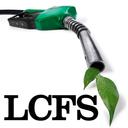Miller-Meeks, Craig introduce Flex Fuel Fairness Act of 2023

Rep. Mariannette Miller-Meeks, R-Iowa
November 30, 2023
BY Erin Krueger
Advertisement
Advertisement
Related Stories
While ethanol producers face undue regulatory requirements each and every day, there is no better example of a wasteful, unneeded and costly regulatory burden than the requirement that fuel ethanol must be “denatured.”
Ethanol Producer Magazine has announced the keynote speakers for the 2025 International Fuel Ethanol Workshop & Expo (FEW) being held June 9-11, 2025, at the CHI Health Center in Omaha, Nebraska. The general session will take place June 10.
A testing change adopted by EPA’s efficient producer pathway program is attracting producers with the means to generate D3 RINs from corn kernel fiber ethanol.
CARB has published additional proposed changes to its pending LCFS modifications, including those that aims to use of sunflower oil feedstock for biomass-based diesel production, and update regulations related to corn stover and biomethane.
The use of carbon-14 analysis for measuring the biogenic carbon content of biomass-derived fuels.





